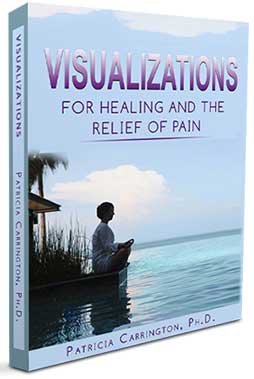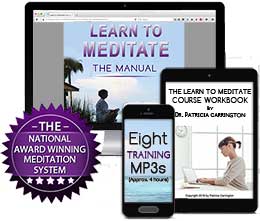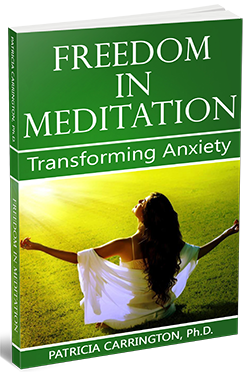Meditation and Personal Growth
Patricia Carrington, Ph.D.
Author of “Freedom in Meditation”
Self-blame may be reduced through another of meditation’s lessons. Children are often effectively shamed by the looks and gestures coming from others around them even before they can understand language. They are also scolded through words. In this way a child’s upbringing can create mental messages such as ‘I am a bad child’; ‘I am sloppy’; ‘dirty’; ‘dumb’; ‘selfish’; or whatever other disapproving terms they have learned to direct at themselves. Unfortunately these negative messages continue to repeat themselves long after parents, teachers and friends have ceased to criticize them in this manner. The phrase ‘a still small voice’ to describe the conscience was therefore well chosen; our conscience is in many respects a ‘voice’. If we tune down the language centers of the brain during meditation and allow the wordless aspects of experience to come into the forefront of our consciousness, we tend to take the sting out of much of our self-blame.
In meditation, self-criticism seems to recede along with other abstract concepts which rely on words, until it remains only a distant whisper. Simultaneously there seems to be desensitization during meditation of the wordless experiences of shame from very early childhood. This two-pronged attack on self blame . . . the reduction of our self-criticizing statements to ourselves about ourselves, and the removal of the negative charge on early wordless shame experiences – is a powerful one. As a result, when meditating, we are often able to experience even the least desirable aspects of ourselves without anxiety. We readmit them to awareness, make friends with them, as it were, and in this way can begin at last to come to terms with these parts of ourselves which had long ago become buried by a sea of negative and painful emotions.
These and other aspects of meditation constitute a profound self-education. Repeated daily over a period of time, these lessons form a conglomerate of experiences and attitudes which can affect our outlook on daily life in fundamental ways. One of the most profound lessons of meditation comes from temporarily experiencing the totality of ourselves, a totality which is unknowable through the limited concepts of our rational mind alone. In this sense, meditation opens up fresh vistas, unexplored territories. Where this new ‘meditative’ awareness is likely to lead us, as a society, is the final question we will consider.
Dr. Patricia Carrington’s award winning meditation technique CSM (Clinically Standardized Meditation) is a clinically sensitive meditation method developed by the Medical Department of New York Telephone Company and used by numerous medical institutions, organizations, and individuals worldwide. For information click here.






